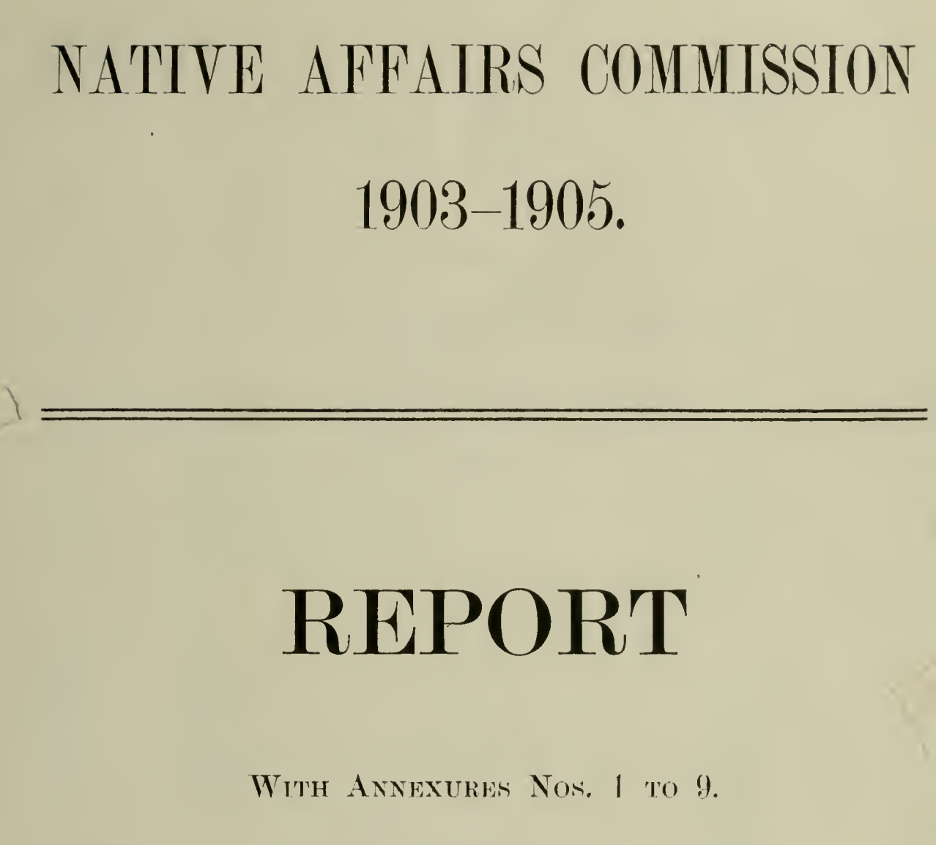South African Native Affairs Commission report on education
Annotation
In 1903, Alfred Milner, the British High Commissioner for South Africa, appointed the South African Native Affairs Commission to examine “the status and condition of the Natives” and to provide recommendations “on questions concerning Native policy” (1-2). When the Commission published its report in 1905, education formed a central theme. The section on education, which begins on page 66 of the report, makes it clear that the priority was on “industrial and manual training” as opposed to “literary education,” since this training means that “the Native is more useful and contented.” For boys, this training meant that they could then be “constantly employed on farms, railways and public works, and in mines and workshops” (66), and for girls, this training prepared them to be domestic servants (45). This emphasis on industrial over literary training underscores how the colonial state’s interests drove educational policy. In addition to making Africans “useful” to the state, education—which is referred to as one of the “great powers” in addition to Christianity (52)—also served as a means of reforming African society and culture. For instance, the report states “education and contact with Europeans are beginning to effect a change in the family life and habits of that large section of the Native population who have not formally adopted Christianity or civilised ways of life” (51). As mentioned in the essay, one of the challenges posed by sources produced by colonial governments is that they rarely contain the perspectives of children and, in this case, Africans. Moreover, official reports like this one contain information that only presents the colonial state in a favorable light, as it wishes to be seen. Yet within the lines of the report, one can find examples of resistance. For instance, it refers to an ongoing “great struggle” over education and also addresses criticisms about education (52). Such references indicate the colonial state’s control over education, children, and African societies was never as absolute or seamless as envisioned. The full report can be found here.
This source is part of the exploring empire through the lens of childhood and gender teaching module.
Credits
South African Native Affairs Commission, 1903-1905: report of the commission with anexures and appendices A[-E] (Cape Town: Cape Times Limited, Printers, 1905), available at http://ia800905.us.archive.org/15/items/southafricannati00sout/southafricannati00sout.pdf.
